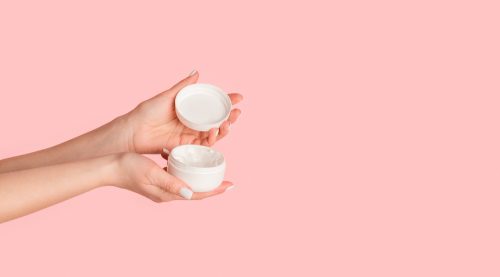
Whether it’s makeup, skincare, or haircare, we all have our favorite beauty products. But sometimes, we love these items to the point where it’s hard to part with them—even when they’re past their prime. Once they reach their expiration date—something that many of us rarely check—they very well might become unfit for use. And using expired beauty products can have detrimental effects on our skin, hair, and overall health. Here, we tapped top dermatologists to discuss the risks of using expired beauty products. Read on to learn why you may want to clean out your medicine cabinet and makeup bag.
READ THIS NEXT: What Happens If You Don’t Wash Your Hair for a Week, According to Doctors.
The shelf life of beauty products varies from product to product, but most of them have an expiration date indicated on the packaging. This date signifies the period in which the product remains stable and effective. After that period, the product may start to deteriorate, lose its potency, and become a breeding ground for bacteria and fungi.
“Expiration dates exist on skincare products to show the date until which the products have been proven to be stable and free of contamination,” explains dermatologist Joshua Zeichner, MD. He says using a product beyond its expiration date isn’t an “absolute no,” but there are some main risks. Here are dermatologists’ biggest warnings.
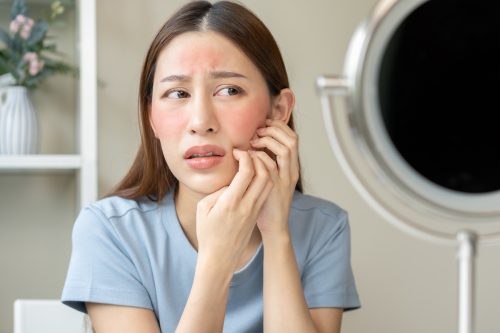
Dermatologist Jeanette Graf, MD says expired beauty products can cause allergic reactions, especially if they were formulated with ingredients that are known allergens or irritants.
This typically happens because “as active and inactive ingredients break down with time, their chemical composition can change to create irritation and or allergic reactions,” explains dermatologist Mona Gohara, MD.
These changes in chemical composition can cause “inflammation, rashes, irritation, acne breakouts, and possibly contact dermatitis,” adds dermatologic surgeon Dendy Engelman, MD, FAAD.
Gohara notes that, again, as the chemical composition changes, lighter products can change their nature to become more oily and pore-clogging, leading to breakouts.
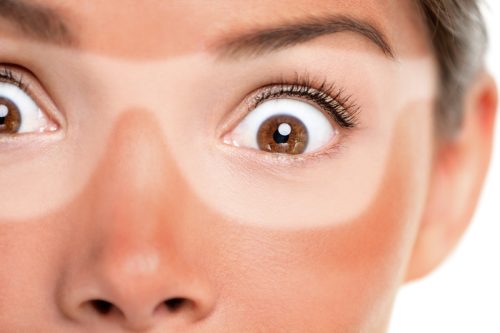
Whether it’s sunscreen or makeup with an SPF component, using these products after their expiration date is especially dangerous.
On their website, the U.S. Food & Drug Administration (FDA) warns that expired sunscreens provide “no assurance that they remain safe and fully effective.” If your sunscreen doesn’t display an expiration date, it should be considered expired after three years, they advise.
Engelman adds that sunscreens with natural ingredients such as plant extracts usually expire sooner than those containing preservatives.
READ THIS NEXT: What Happens If You Don’t Clean Your Makeup Brushes for Over a Month, According to Experts.
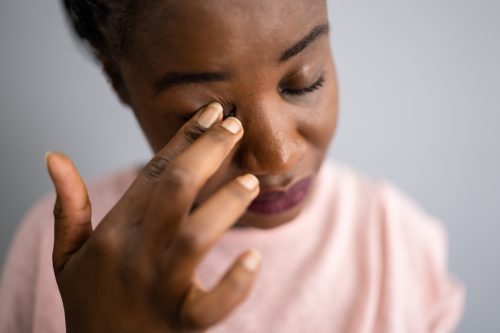
Speaking of preservatives—this is what helps ward off bacteria in beauty products. But once the product hits its expiration date, they’re not as effective, and your face cream or foundation becomes more susceptible to bacteria and other microbes, notes Gohara.
“Applying a contaminated product to your skin, especially if there are any open or raw areas, can mean a potential infection,” warns Zeichner.
Engelman says to be extra careful with eye creams “to prevent eye infections that can lead to issues with vision.” The same is true for expired mascara and eyeliner, which can also cause sties if bacteria have gotten in, Graf told health.com.
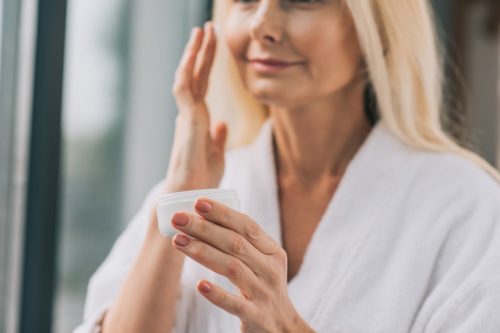
As we know, the ingredients in beauty products begin to break down near their expiration date, which means they won’t be as effective.
Skincare products that contain active ingredients like retinoids, vitamin C, Hyaluronic Acid and alpha hydroxy acids will, therefore, “start to lose their power,” Engelman says.
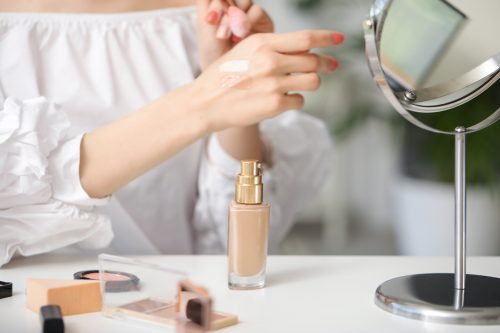
When it comes to makeup specifically, dermatologist Kristina Collins, MD says the color pigments will change over time and will not last as long on the skin.
According to the Mayo Clinic, this is especially problematic with foundation products. “The longer the foundation is kept after purchase, it can oxidize. This oxidation can change the color.”
The texture of foundation can also change, so “it can be difficult to achieve an even application,” Collins adds. Mascara, too, may change texture and go on very clumpy.
For more beauty and health news sent directly to your inbox, sign up for our daily newsletter.
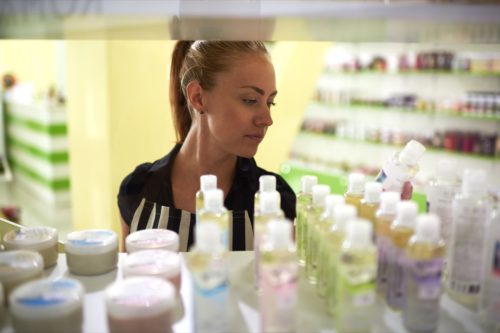
All beauty products have a shelf life, and once you open the product, the clock starts. But there are some simple ways you can ensure their efficacy.
In general, quality skincare products should be stored at room temperature, notes dermatologist and facial plastic surgeon Jaimie DeRosa. But be sure to read the packaging; for example, some skincare products without preservatives may do better kept in the fridge.
Where you’re getting your beauty products can also make a difference. “Big wholesale distribution online centers may store products in non-climate-controlled warehouses before shipping, which means that you may have a beauty product that has broken down in the heat and is ineffective and/or causes adverse reactions, such as rashes or irritation,” DeRosa says.
Now that you know why you need to toss unused beauty products once they’re expired, it’s important to note that disposing of them properly is also key. Some products may contain harmful chemicals and ingredients that can pollute the soil and water if not disposed of properly (like nail polish remove, for example), so be sure to read any relevant information on the packaging.


